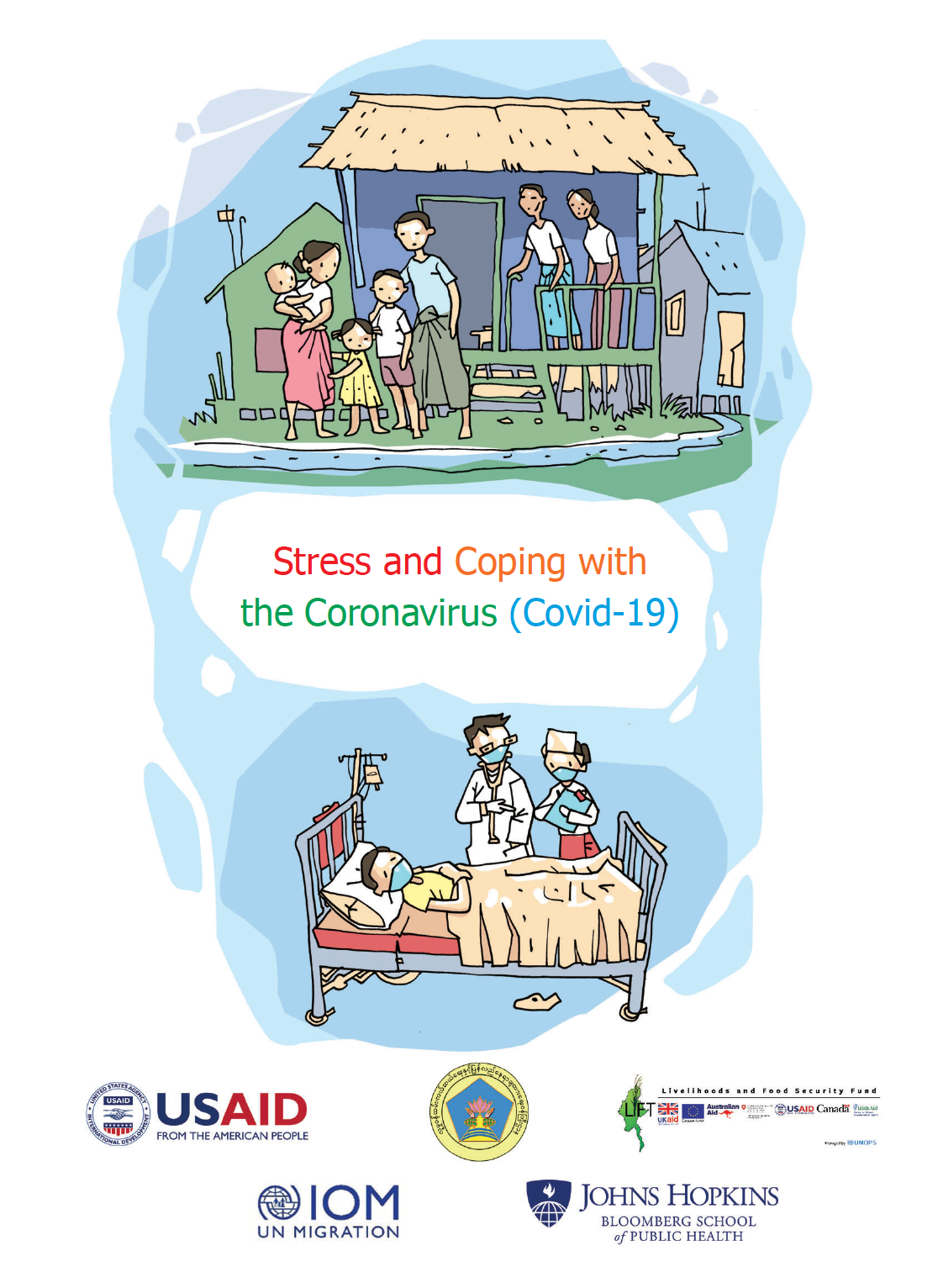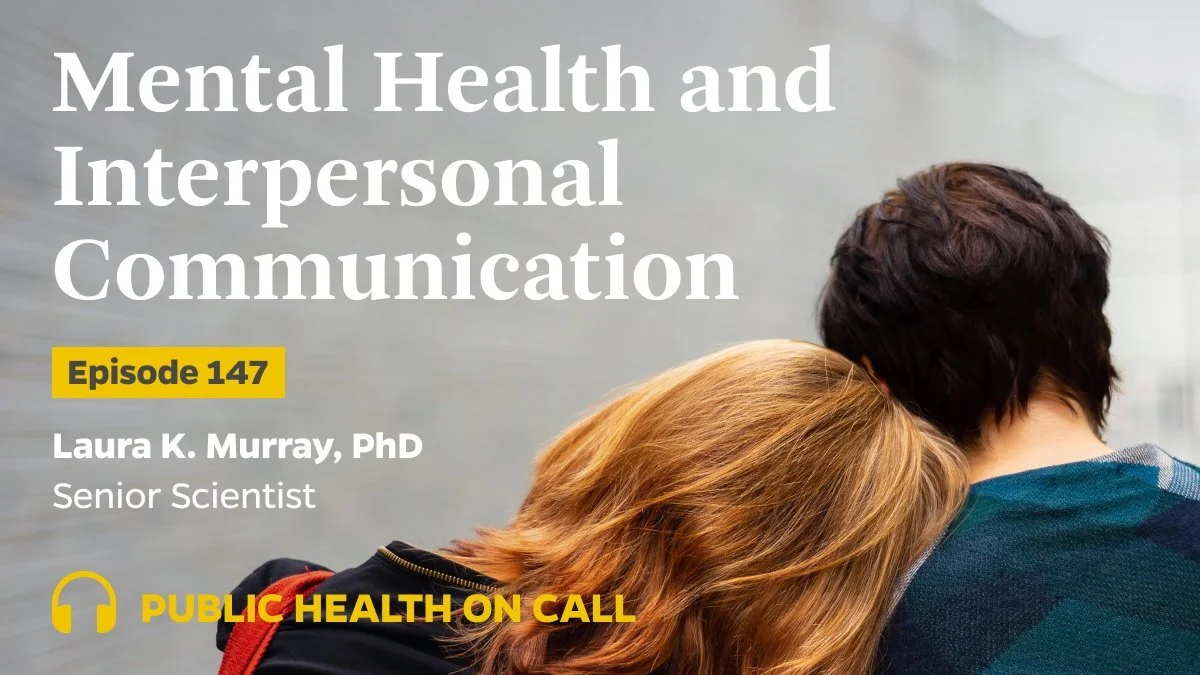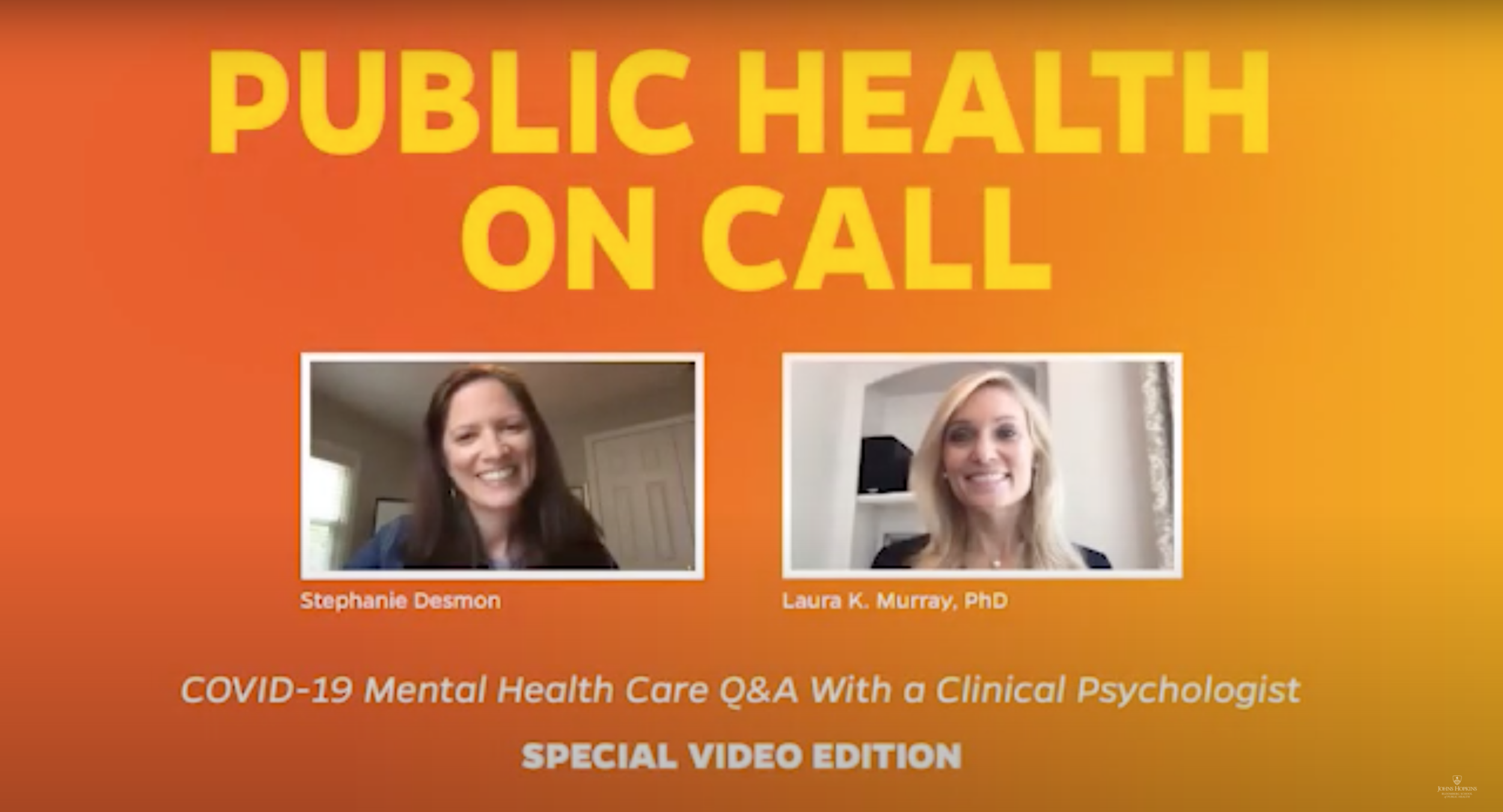COVID-19 MENTAL HEALTH TOOLKIT
As this Coronavirus pandemic evolves and brings new mental health challenges to our daily lives, we are actively creating and gathering resources to support our communities at home and abroad. Check back often and please help share this information far and wide. We’re in this together.
GLOBAL MENTAL HEALTH videos
Produced in collaboration with The Refugee Response to provide coping strategies for maintaining mental health in times of uncertainty and crisis.
Learn more about The Refugee Response
COVID TOOLKIT
Evidence-based tips and strategies for taking care of ourselves during and after coronavirus.
Video series sharing strategies to tackle stress and anxiety during COVID-19.
Schedules: Stay Focused & Productive
Triangle: A Tool for Shifting Perspectives
COVID-19 General Self-Care Tips:
Stress and Coping with Coronavirus:
မြန်မာ | Myanmar
COVID-19 နှင့်ဆက်ဆံရန်စိတ်ပိုင်းဆိုင်ရာကျန်းမာရေးအချက်အလက်များနှင့်ဖြေရှင်းနည်းများ။
Local mental health tips and strategies for coping with COVID-19 in Myanmar.
Україна | Украина |UKRAINE
Місцеві поради та стратегії психічного здоров’я для подолання COVID-19 в Україні (українською та російською мовами).
Местные советы по охране психического здоровья и стратегии по преодолению COVID-19 в Украине (на украинском и русском языках).
Local mental health tips & strategies for coping with COVID-19 in Ukraine (in Ukrainian & Russian language).
Why and how to find ways to meaningfully connect when physically separated. Re-connecting face-to-face with vulnerable loved ones may be appealing at this point in the pandemic and around the holidays, but in many situations, it continues to be risky and unadvisable. Via Johns Hopkins University.
Dr. Laura Murray interview in Rolling Stone about the mental health impact of long-term COVID 19. “…fatigue, decreased energy, and trouble concentrating—three conditions closely associated with long-term COVID—are all assessed in mental health screenings for conditions like anxiety and depression.
How can we deal with all of the unique stressors happening right now? How can families adjust to “back to school,” in whatever form that may take? Is it helpful to have a broader perspective of what’s going on in the world? CETA’s Dr. Laura Murray talks about about to protect and prioritize our mental health.
How can we think about the long-term impacts of disruption caused by COVID-19 on kids and adults? How can we get kids to talk about their feelings? Are we becoming “numb” to COVID and taking more risks? Clinical psychologist Dr. Laura Murray returns to answer your COVID-19 mental health questions.
Dr. Laura Murray talks about navigating relationships in the COVID era. How to approach talking with others about coronavirus and finding common ground. Interview aired live on Maryland public radio station WYPR (9.15.20).
Anxiety. Depression. Fear. These common responses to the coronavirus pandemic can affect people in any setting. While psychological responses to COVID-19 may be universal, effective and accessible mental health care is not—particularly in low- and middle-income countries.
As public health faculty at Johns Hopkins, we have been monitoring not only the map and progress on vaccines, but the impact COVID-19 has on the human condition. This is where I come in as a psychologist...
What does resilience look like in this new normal? Dr. Laura Murray addresses a range of timely COVID-19 mental health and self-care questions.
Episode #35: Changing Your Brain Chemistry w/ Dr. Laura Murray
Did you know we can manually adjust our brain chemistry leading to increased happiness (and health)? What can we learn from an global researcher that may improve access and cost to mental health services in the U.S.?
CORONAVIRUS STRESSING YOU OUT? HERE’S HOW TO COPE (The Baltimore Sun)
EMOTIONAL INTELLIGENCE KEY TO LEADING DURING VIRUS (Bloomberg.com)
HERE’S HOW TO REDUCE YOUR STRESS OVER THE CORONAVIRUS PANDEMIC (The Baltimore Sun)
SOCIAL DISTANCING? HERE'S HOW TO PRIORITIZE SELF-CARE (Johns Hopkins University HUB)
IS IT SOCIAL-DISTANCE SADNESS… OR DEPRESSION? (Apartment Therapy)
COVID-19 Q & A
Ask the Mental Health Experts
- Everyone may be a little on edge at times – especially these days.
- Try to take a deep breath before saying anything.
- Try keeping track for a couple days on what exactly is making you feel angry or agitated.
- Give yourself some grace – many of us are a little more on edge!
- Know that we are all in this struggling to find ways to stay connected and not feel too lonely.
- Try to learn the ways YOU feel connected – social media, seeing someone while you talk, phone, etc. If you are doing a lot of Zoom but not really connecting on a more personal level, you may need to try something else.
- Schedule calls and make sure others are calling and reaching out to you so its not one-sided.
- Anxiety during a time like this is very normal.
- Try to write down the strength or intensity of anxiety at different times. Its easy to feel like these emotions are strong all the time, but more than likely they come and go, and are at different strengths.
- The times that you have higher anxiety, plan to do either an activity that brings you joy, or reach out to someone.
- Times that you notice you are not feeling as strong anxiety, note what is going on at that time. It may help you think of things/people/situations you could replicate.
- Try communication using an “I feel or it seems statements…for example – I feel like you may think my distance has to do with my feelings for you instead of the recommendations related to COVID.
- Reassure your loved ones – “I’m nervous about COVID and want to be very careful. This does not change my feelings for you.”
- It is very normal to have strong feelings when you are missing out on something. Things like graduations are important, and feelings of anger, sadness, frustration are all normal. Write down those feelings each day along with how strong they are.
- Talk to others going through the same thing. Be open about your feelings. It is better to get them out then hold them inside. Remember the goal is not to “just be happy” but to limit the intensity of emotions.
- If you are a parent, it may help to name the feelings your youth may be having. For example, “Its okay to feel angry, sad, frustrated, etc. with not being able to do X…”
- -You may want to watch our videos on re-training your brain. For example, instead of thinking “my life sucks”, you can work on more helpful thoughts like, “I’m missing out on a lot, but other people are too.”
- This is a very serious issue. First, it is GREAT they told you or you asked to know this.
- Call them often and get others to also if you can.
- Ask direct questions daily (or many times a day) like “Are you going to kill yourself? Do you have a plan? Do you have the means to the plan?”
- Make sure they have hotline numbers to call if they are thinking a lot about killing themselves. Or in our lower resource areas, someone in their community they can trust to call on.
- Connect them with a tele-health professional, if one is available.
- Nope—many are! It has been for some a time to slow down. You have found ways to stay positive, so keep it up and maybe reach out to others who may not be doing well.
- Remind yourself, or learn/re-learn, what it is that makes you motivated. What makes you tick?
- Try to nail down what exactly you are struggling with motivation around. This is important because it may be a specific task you are having trouble with, or concentration in general at a time of the day. If it is overall, ask yourself if this is new or something that started before COVID?
- Start a journal to write down what you are not motivated to do and what your thoughts are around that. After a few days you may start to see a pattern.
- Be patient with yourself—there will be days where there is less motivation.
- This is a normal reaction. It is important to know this first. A pandemic brings up the topic of death which is often avoided in society.
- Write down your specific thoughts around death. Is it “I am going to die.” Or “There have been so many deaths.” Or maybe wondering “What is it like to die from COVID?” This may help you notice if there is something in particular you are worried or thinking about.
- Reach out to someone close to you and tell them you are thinking a lot about death. You may be surprised to hear that others are also.
- Try watching one of our re-training the brain videos. This may help you come up with slightly more helpful thoughts around death.
- Very insightful question! This is where emotional intelligence comes in – one of my favorite topics. First, try to keep a gauge on where your thoughts/emotions are. That allows you to more accurately read and work with others.
- People are always going to have their own thoughts, feelings, situations, perspectives, etc. One re-frame or re-training of the brain may be “I am having trouble making sense of her viewpoint or situation but I appreciate that we all have unique ones.” Even this simple re-frame will allow you to have empathy for others’ experiences.
- Be curious and ask! – with empathy of course. The truth is we don’t always know what others are going through so ask and know that all experiences are different—and in a pandemic like this ever-changing.
- This depends a little on how well you know them. Remember that everyone is in a different situation. One person may enjoying the peace, and/or have a lot of other connections. Others may want zoom, telephone, or even a nice delivery of food.
- One of the things we hear a lot from those on their own is craving to speak to someone else. You might say that to normalize that and ask if you can call them X times a week and when might be good.
- Depending on the phase of COVID-19, some may be able to go for a walk outside at some distance with masks on – or speak to that person from outside the house.
- Another idea is to send a card in the mail, or email, or drop off a delivery just to let them know you are thinking of them.
- This depends on the situation and context a bit, for example how sick the person is, if there is family around, what stressors the colleagues/friends have, etc.
- Ask about what they could use that would be helpful. Some ideas are delivery of wipes/masks as these individuals are usually constantly cleaning. Send encouraging notes because the fear/anxiety usually increases when in this situation. If you are in a place to help with family members (kids), or dinners to ease other tasks that may be helpful.
- For yourself, it is also important to write down your thoughts and feelings about this. When we start having those close to us going through COVID, we also may think/feel differently and it is helpful to acknowledge that.
Have a question for Dr. Murray or the CETA team?
Send us an email or direct message on Twitter @CETAglobal













